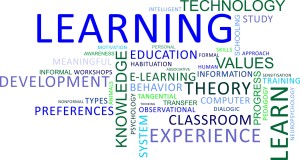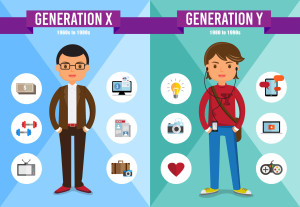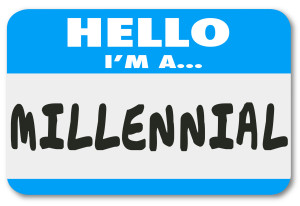So can you classify generations at work? Do they have different orientation and hence different working styles? Do they have different learning needs and preferences?
I am not sure whether the government organisations face these issues or questions because of their set pattern of hiring and promotions, however I have seen this as one hot topic of discussions in various conferences, forums, lunch meetings etc with reference to private organisations.
Anik Tolbize, a researcher at University of Minnesota in her seminal work gives some insight on this issue. This study is done for American workforce and might differ to an extent for other countries including India.
Here is my understanding of these generations, their working styles and learning preferences.
These are the people who are born between 1928 and 1944. They value conformity, authority, rules and top-down management approach. They expect deference, special treatment and more weight given to their opinions. They prefer learning soft skills through on the job, peer interaction and feedback, classroom instruction – live and one-on-one job coaching. They prefer learning hard skills through classroom instruction – live, workbooks and manuals, books and reading.
- Baby Boomers :
 There are the people who are born between 1945 and 1964. They are workaholics and may not be very comfortable interacting with authority figures. Similar to traditionals, they expect deference, special treatment and more weight given to their opinions. We find a similar soft skills and hard skills learning patterns as that of traditionalist
There are the people who are born between 1945 and 1964. They are workaholics and may not be very comfortable interacting with authority figures. Similar to traditionals, they expect deference, special treatment and more weight given to their opinions. We find a similar soft skills and hard skills learning patterns as that of traditionalist
There are the people who are born between 1965 and 1979. They believe on working only as hard as is needed. They are comfortable with authorities and are not impressed with titles or intimidated by them. They find it natural to interact with their superiors. They want to be held in esteem, want to be listened to and do not expect deference. Their preferred soft skills learning style is discussion in groups, peer interaction, assessment and feedback. Hard skills learning is through classroom instruction – live, on the job, workbooks and manuals and coaching.
These are the people who are born between 1980 and 1994. They believe that respect must be earned. They are comfortable with authority. Similar to generation X, they want to be held in esteem, want to be listened to and do not expect deference. Their soft skills learning preference are on the job, peer interaction, assessment and feedback. They prefer learning hard skills through on the job, classroom instruction – live, workbooks and manuals and coaching.
There are the people who are born after 1995. This is a digital generation. Wants flexibility is every aspect possible. They are fast decision makers and are highly connected.
Many traits are yet to emerge for this generation.
Here is a summary for your quick reference.
| Traditionalists | 1928 – 1944 | Value authority and a top – down management approach; hard working; make do or do without |
| Baby boomers | 1945 – 1964 | Expect some degree of deference to their opinions; workaholics; be anything you want to be; eternal youth – retirement as freedom |
| Generation X | 1965 – 1979 | Comfortable with authority; want to e listened to; will work as hard as is needed; take care of yourself; importance of work-life balance |
| Generation Y | 1980 – 1994 | Respect must be earned; you are special; achieve now; technologically savvy; goal and achievement oriented; slacker generation |
| Generation Z/Millennials | 1995+ | Many traits still to emerge; digital natives; fast decision ,makers; highly connected |



